Digital Cooperation Organization: Goals, Plans, and Interest in Azerbaijan – PHOTO

The Digital Cooperation Organization (DCO), a global intergovernmental organization dedicated to fostering digital prosperity by accelerating the inclusive growth of the global digital economy, concluded its 3rd General Assembly in Bahrain on January 31, 2024.
The DCO Council also announced the joining of the People’s Republic of Bangladesh, the State of Qatar, and the Hellenic Republic as the new Member States and officially handed over its presidency from the Kingdom of Bahrain to the Hashemite Kingdom of Jordan.
Chaired by H.E. Mohamed bin Thamir Al Kaabi, Chairperson of the DCO and Minister of Transportation and Telecommunications of the Kingdom of Bahrain, and with the participation of Deemah AlYahya, the Secretary-General of the DCO, the General Assembly convened ministerial representatives and heads of delegations of 16 DCO Member States, in addition to guest countries and observers.
DCO Member States cover a population of around 800 million and a GDP of USD 3.5 trillion.
Topics of discussion included cross-border market growth, the value of data, a sustainable digital economy, digital cooperation to deliver impact, digital trade, investment, and entrepreneurship, accelerating the digital cooperation agenda, etc.


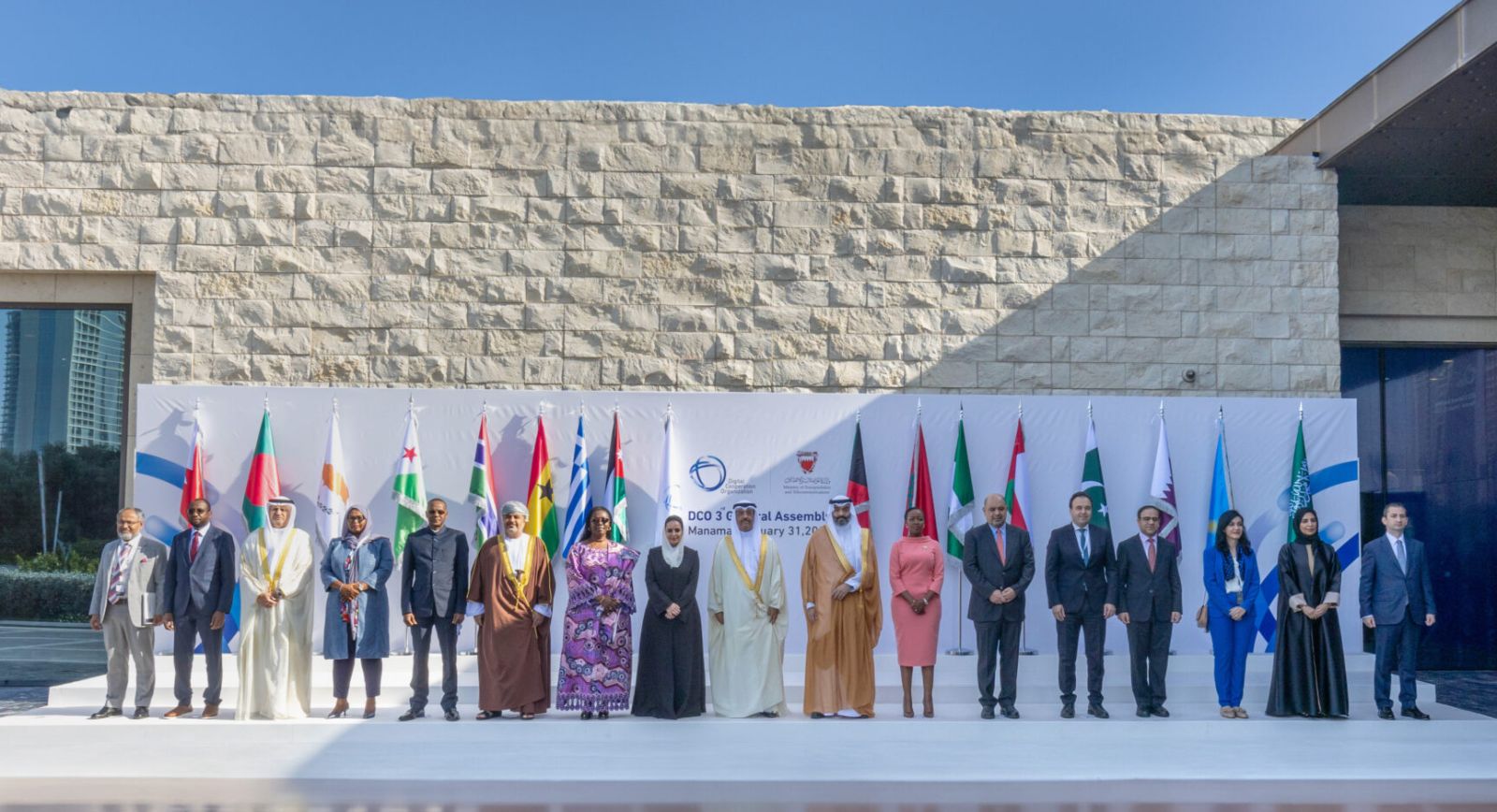
In their Council Declaration, the DCO Member States reaffirmed their commitment to build an agile, efficient, and relevant multilateral organization, acknowledging the critical juncture in the advancement of the global digital economy and emphasizing the importance of multilateral and multi-sectorial cooperation to drive and accelerate the sustainable and inclusive growth of the global digital economy.
Member States announced the launch of a new DCO initiative, the DCO GenAI Center of Excellence Initiative, which will kick-start a network of state-of-the-art facilities equipped with advanced systems.
Other new DCO initiatives announced to drive digital cooperation included the Data Embassy Initiative and the Online Content Integrity Initiative. These DCO initiatives, in collaboration with Member States, Observers, and Partners, aim to achieve a sustainable and inclusive digital economy.
About the organization
The DCO is a global intergovernmental organization aimed at enabling digital prosperity by accelerating inclusive growth in the digital economy.
Established in November 2020, the DCO brings together ministries of communications and information technology in 16 countries: the Kingdom of Bahrain, the People’s Republic of Bangladesh, the Republic of Cyprus, the Republic of Djibouti, the Republic of The Gambia, the Republic of Ghana, the Hellenic Republic (Greece), the Hashemite Kingdom of Jordan, the State of Kuwait, the Kingdom of Morocco, the Federal Republic of Nigeria, the Sultanate of Oman, the Islamic Republic of Pakistan, the State of Qatar, the Republic of Rwanda, and the Kingdom of Saudi Arabia.
The DCO focuses on empowering youth, women, and entrepreneurs, benefiting from the accelerating power of the digital economy, leveraging the accelerative power of the digital economy, and leapfrogging with innovation to drive economic growth and increase social prosperity.
The DCO’s vision is to work towards a world where every nation, business, and person has a fair opportunity to prosper in the digital economy.
The next General Assembly of the DCO will take place in February 2025 in Jordan.
DCO and Azerbaijan
Note that the 1news.az information website was the first media resource from Azerbaijan to receive an invitation to the DCO General Assembly. Such particular attention to Azerbaijan is a reflection of interest in cooperation with our country.
We contacted the Ministry of Digital Development and Transport of the Republic of Azerbaijan with a request to comment on possible cooperation with this organization. The Ministry informed that Azerbaijan has received an offer from another party to become a member of the Digital Cooperation Organization (DCO).
"Meantime work in this regard is being carried out under domestic procedure. After the relevant decision is made, the other party will be informed about it," - the Ministry reported.
Interview with the Secretary-General
Kamala Mammadova, editor-in-chief of First News Media (1news.az), met with DCO (Digital Cooperation Organization) Secretary-General Ms. Deemah AlYahya. The Secretary-General answered our questions.
- What work are you doing at DCO to cooperate with countries to ensure that all nations have the same ability to leverage the power of digitalization?
This is an amazing question. First of all, I want to thank you for coming. Thank you for your interest in the Digital Corporation Organization and for being here. It means a lot to us. The DCO is a very unique organization that has been created for specific reason and objectives.
That reason is to bridge that digital divide, as you have mentioned, and no country can do it alone. The agenda of digital transformation is huge, from infrastructure hosting to human capital development, and therefore they need to. So this is the time to cooperate, and this is the time to go hand in hand and help each other. But we cannot do it without the private sector. So the uniqueness of DCO is that it is a platform that bridges that communication gap between the governments, private sector, and civil society. So, the first thing that we do is identify the gap.
We have to see what the gaps are in each country. And after we identify that gap, we see what is working in another country that can fill that gap in another country. For example, if an identity management system is working in Bahrain, why reinvent the wheel? Let's use it in Rwanda. If there is a policy that is working in Nigeria, let's use it in Pakistan. So that's how we are interpreting or bridging the digital divide: by sharing the right information with the private sector, identifying opportunities as well, and trying to share best practices between countries.
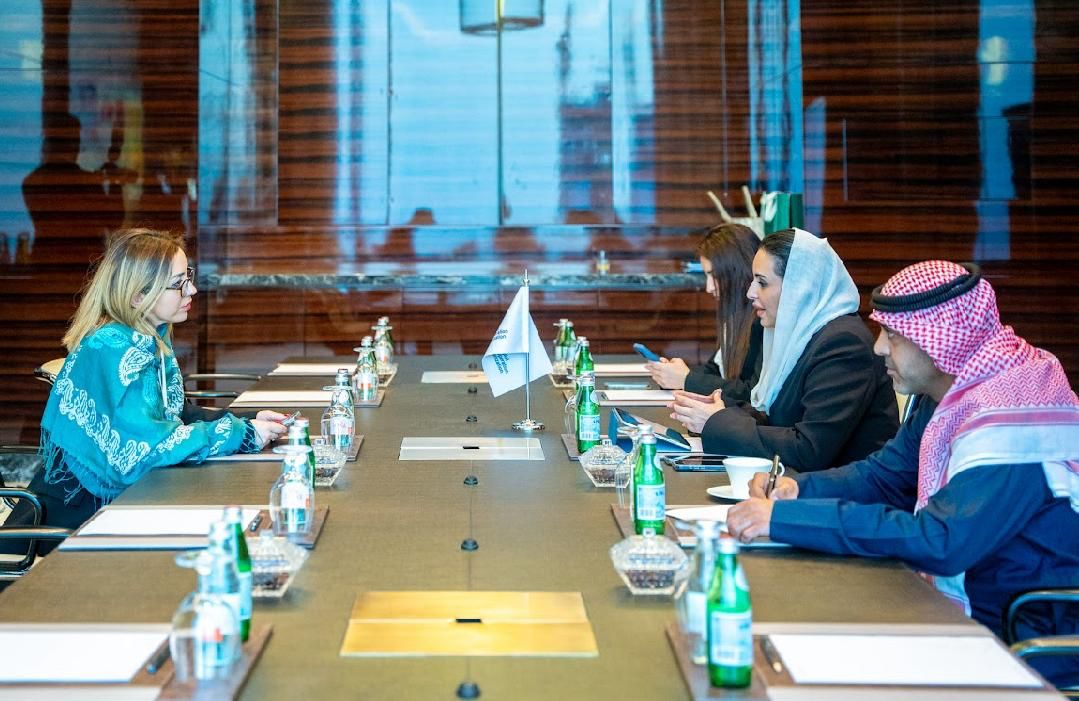
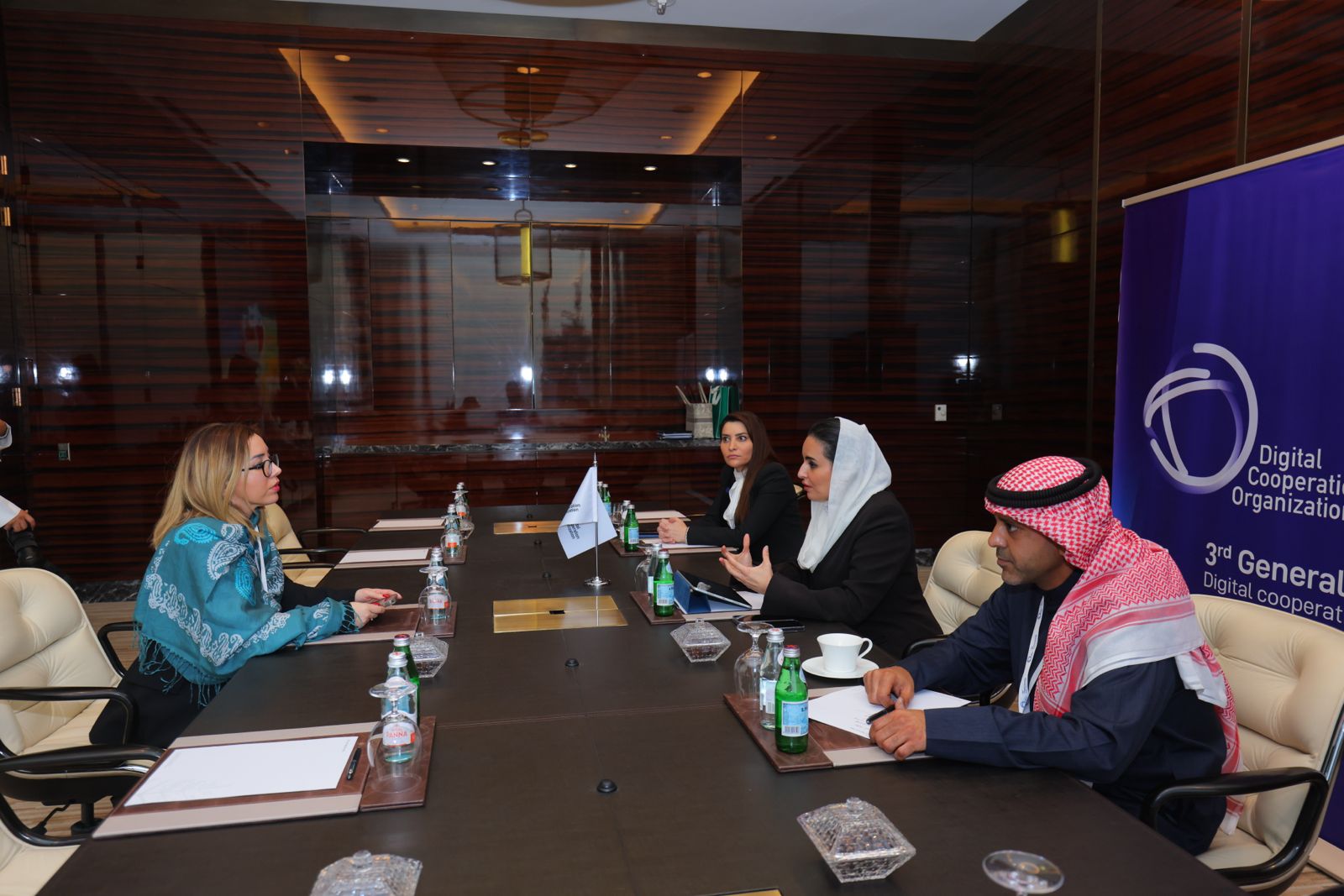
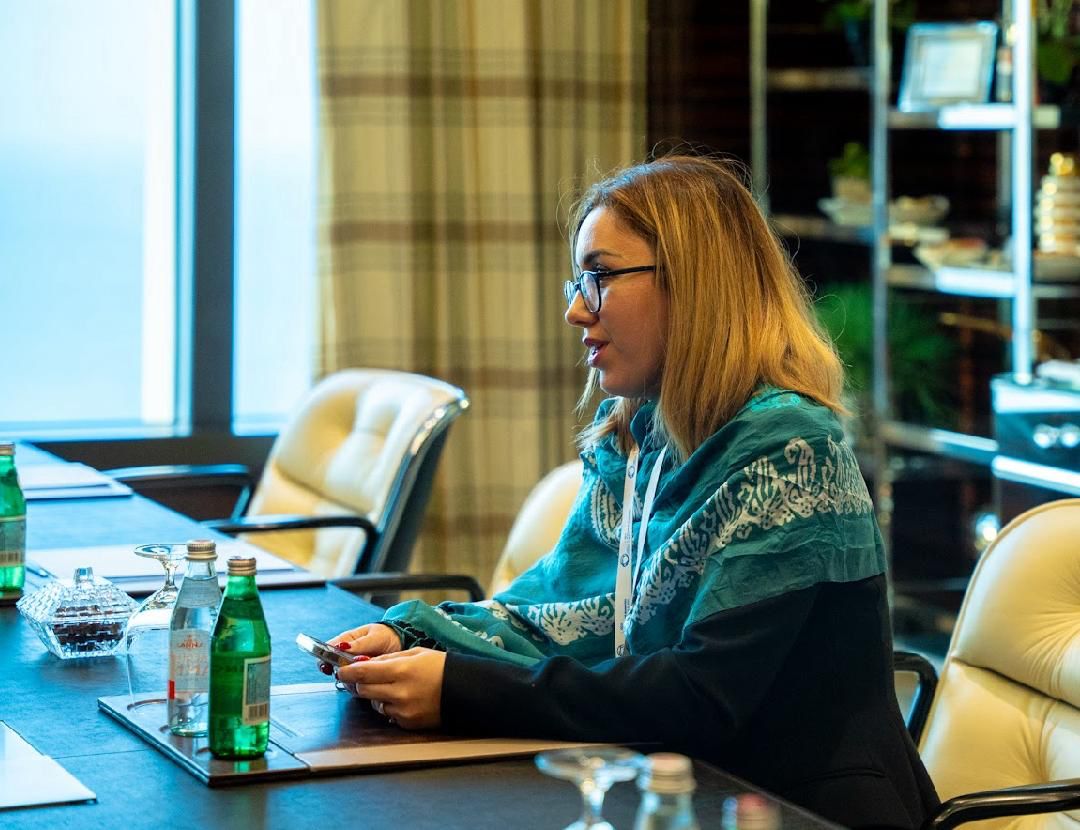
Thank you for the detailed answer. Are you planning cooperation with Azerbaijan? And if yes, in what format?
Well, as we always say, we're an economic and social development organization. We're here to accelerate the digital economy and advance digital transformation in our member countries. We welcome any like-minded nation that is willing to share best practices and is also willing to change and transform very quickly. And the best way to do that is through diversity. So, the more countries we have on board that have the right mindset and the right intention, the better. Definitely.
And therefore, we welcome Azerbaijan as well as any other country that is willing to or that is going through its digital transformation agenda.
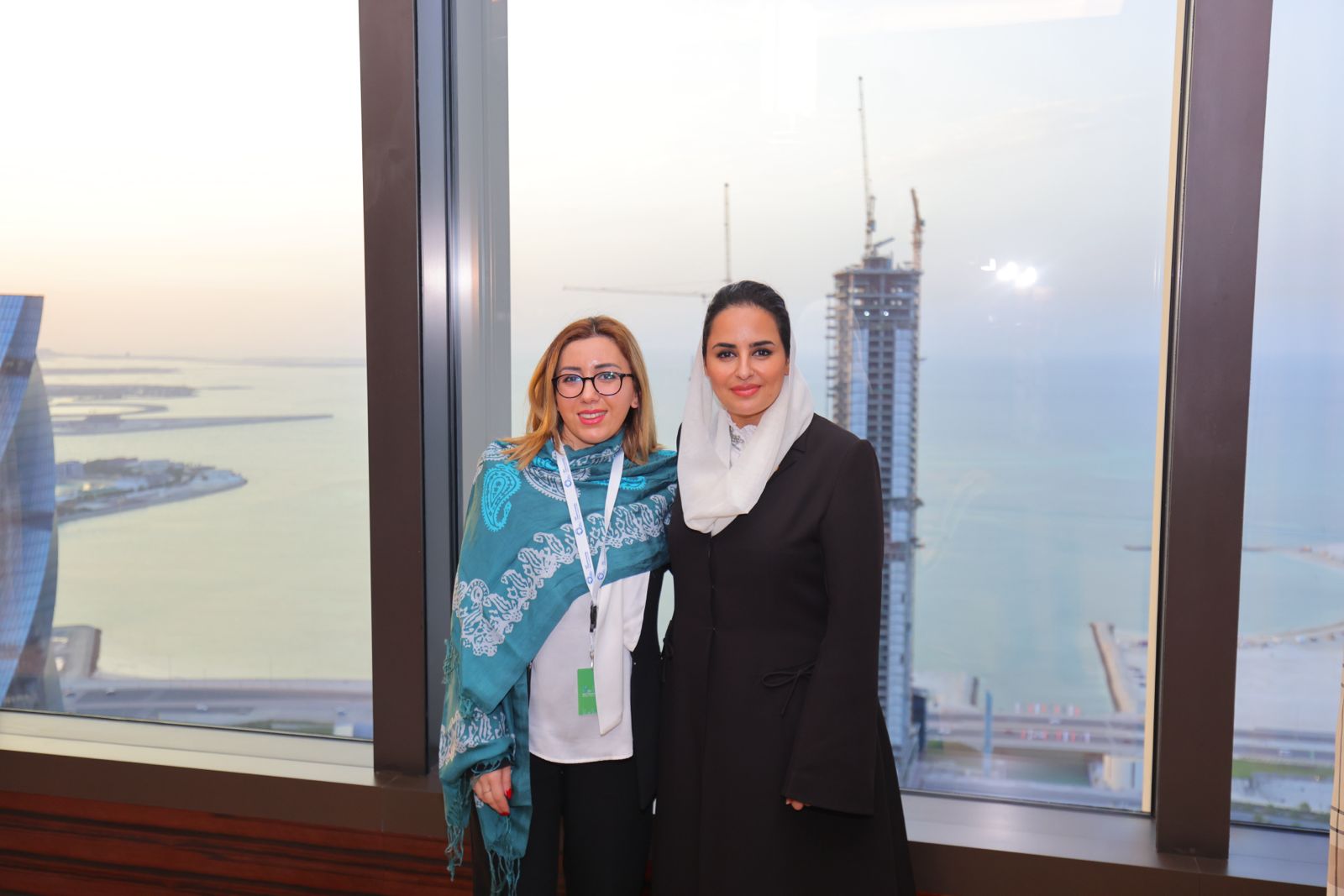
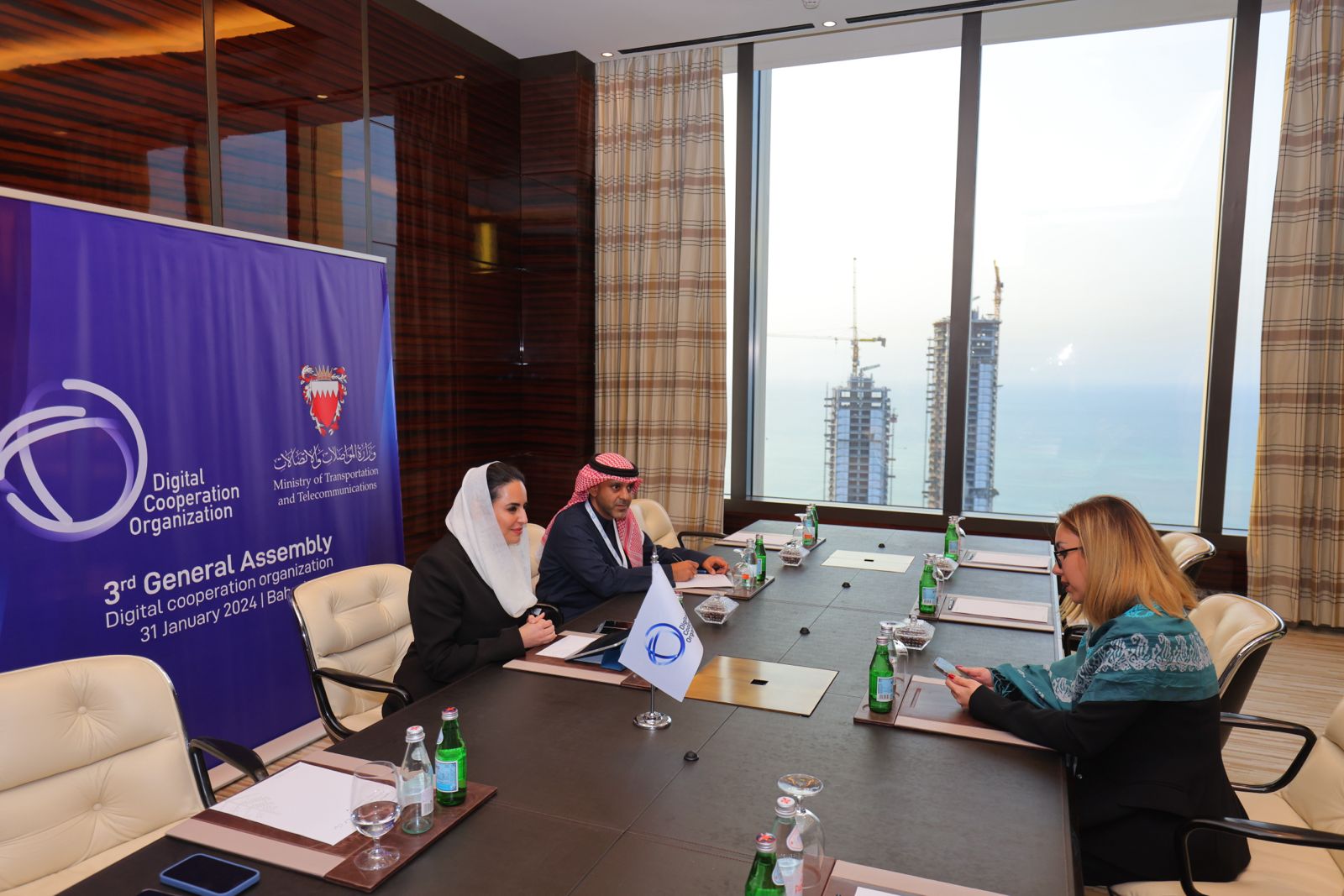
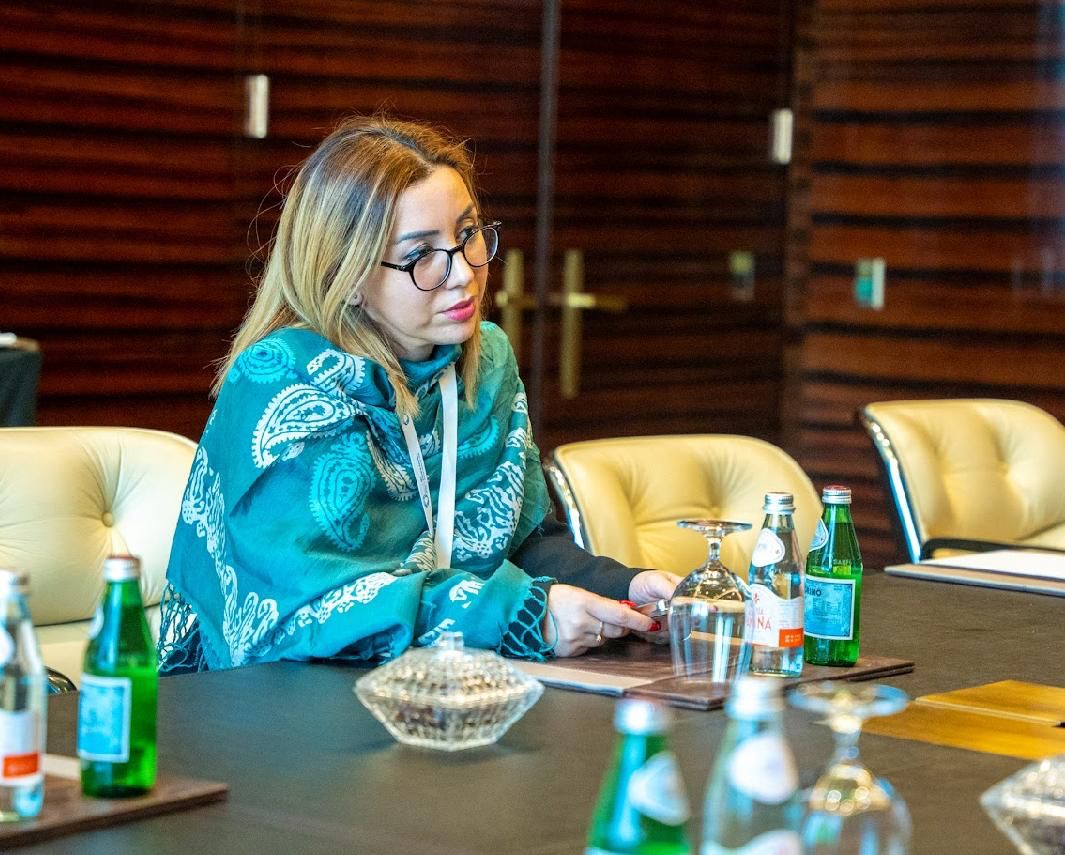
- As you know, there are certain stereotypes, especially in Muslim countries, that the IT sector is not for women. By saying so, I rely on the statistics in my country, too. How important is it to have more women in the field of STEM?
Thank you so much for that question. That's a very heartfelt question, and I have been calling for it for the past two decades. It does not know borders. It does not know any races or religions. We look at facts and numbers. Now women are half of society. If we do not enable women to contribute effectively to the digital economy, that's not only a societal loss; that's an economic loss.
So it frightens me when I read reports that 350 million women will not have access to the Internet by 2030. That's huge. And therefore, we are very keen on making sure to create initiatives that will empower women. Women are the essence of our organization. Our mission is to enable youth, women, and entrepreneurs to know and believe that they are the leaders of the digital economy going forward. So therefore, we launched several initiatives that will enable and help women to move from job seekers to job creators by transitioning traditional women's businesses into online businesses, educating and providing women with the skills that they need to navigate in the digital economy, and also providing help and support in terms of funding for their ventures as well.
So we're looking at all the aspects, from a developer to a founding venture to an angel investor as well.
We elevate it as an initiative that is led by Rwanda. And we expect our target to be to digitize 50,000 women's businesses, hopefully very soon, where we're going to see a direct contribution to GDP and job creation. It's expected that by 2030, if we incorporate women to participate effectively in the digital economy, we're going to get a boost of $500 billion in the economy. So that's not easy. And we have to look into it very seriously.
- Thank you very much.














